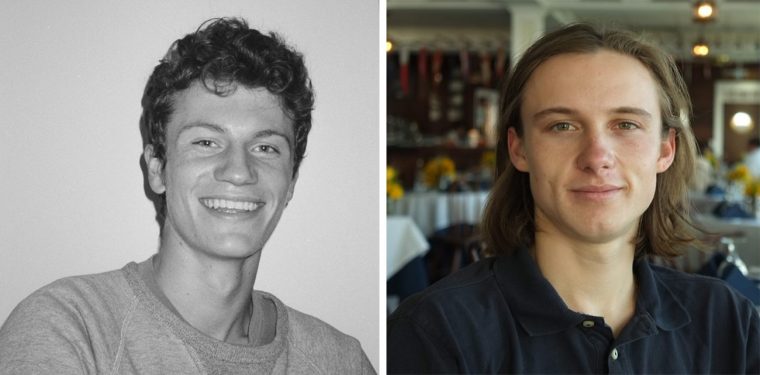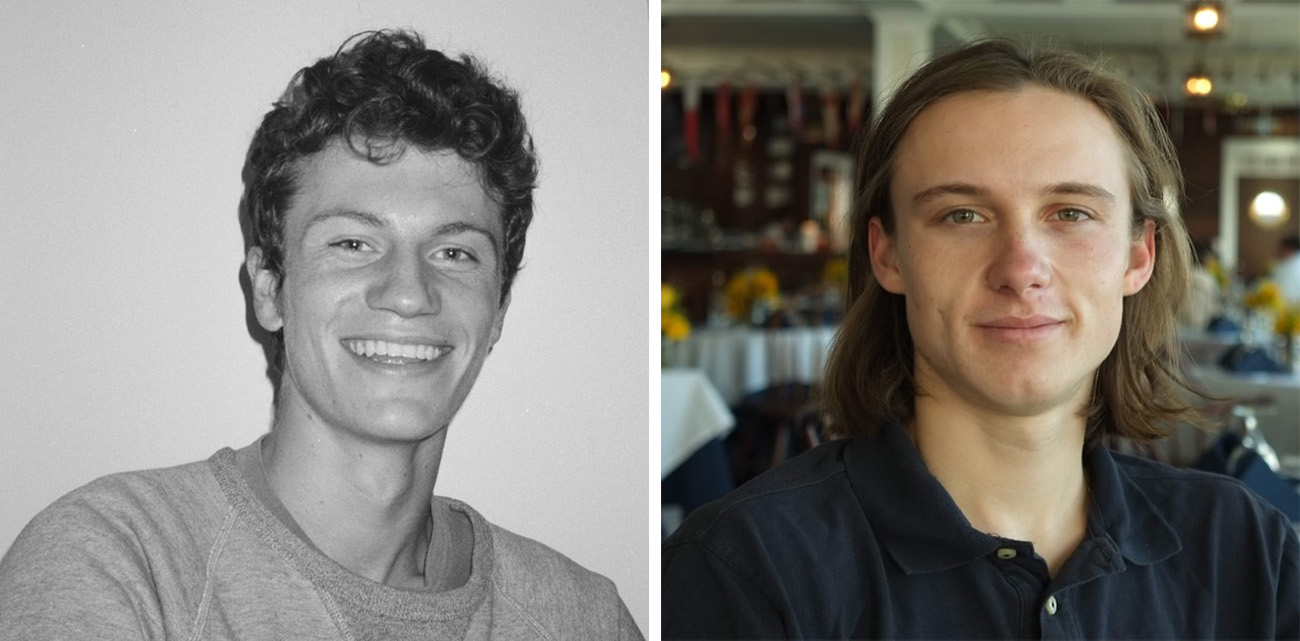Students Form Connections with Senior Citizens Isolated by Pandemic


Shortly after returning home to New York City this spring amid the coronavirus pandemic, Walker Brandt ’22 was out for a walk near the Hudson River when he caught a glimpse of yellow tape in front of Brookdale, the senior living facility that had previously been his grandmother’s home. A sign on the sliding doors read, “No in-person visits are allowed at this time.”
Brandt immediately appreciated the precautions the facility was taking to keep its residents safe, but also wondered what the seniors’ social lives would look like without visitors. With the suspension of in-person visitors also came a decision to halt all interpersonal activities within the senior home.
“These precautions underline the obstacles seniors are facing with limited technology compatibility and without platforms to socialize remotely,” said Brandt. “I realized the next couple of months are going to be especially lonely for them.”
Brandt began researching the response efforts at senior facilities more broadly within the New York area and learned that the actions at Brookdale were common. He and his partner in this endeavor, Lars Delin ’22, also noticed inequities in how seniors were being accommodated during this time. This led them to develop a partnership with the Dyckman Senior Center in the Bronx, a city-run facility that has limited access to funding. A nonresidential facility, its members all live independently in nearby housing. Thus, due to the pandemic, its members are “deprived not only of human interaction but also help that the staff normally provides,” Brandt said.
Brandt and Delin approached Dyckman’s manager, Carol Weeks, with a proposal to set up regular interactions between young volunteers and senior center members, and she enthusiastically agreed. She identified 20 seniors who would enjoy participating in what’s become the Support a Pal program. While the program began only with English-speaking “pals,” said Brandt, it has now expanded to those who have Spanish and Mandarin listed as their primary language.
Currently, there are 20 volunteers engaged in Support a Pal—15 Wesleyan students, and five students from other colleges and universities who are high school friends of Brandt and Delin. The volunteers and elderly pals typically connect via a weekly phone call, lasting between half an hour and an hour-and-a-half, based on the comfort and enthusiasm of both parties.
Brandt said that these cross-generational interactions not only bring companionship for both parties, but allow the volunteers to ask for advice and a perspective that they may not have otherwise had access to.
“Such an unconventional relationship prompts personal anecdotes that produce introspection on both ends, creating vulnerability that rarely comes from talking with a stranger,” he said.
For example, Tyler Jenkins ’22, back home in New Haven, was paired with John Andressen, a 74-year-old senior center member who is now living in Florida during the duration of the pandemic. Jenkins, an aspiring musician, was delighted to find that Andressen was a retired professional musician who had played in Billy Joel’s guitar player’s band back in the day. The two quickly connected as they talked about the process of performing, discussed how to navigate the music industry and grow as an artist, and shared musical styles they enjoyed playing. From 1,200 miles away, two strangers, generations removed, were able to share their passion, which provided natural moments for advice and exchange.
Similarly, Nina Criswell ’22 found herself finding connection and advice from her senior pal, Elizabeth Vega.
“I kind of brought up my situation now in San Francisco, living alone with my sister. I soon asked her about whether she had any siblings and she talked a lot about being an only child and how she had to be really independent at a young age because she was new to the U.S. with no education,” Criwell said. “It felt really personal and meaningful.”
Brandt and Delin are looking to onboard more volunteers and seniors, and eventually, expand to more senior centers. Please visit the Support a Pal website for information about getting involved.
“It’s no surprise that members of the Wesleyan community have sprung into gear to address COVID-related issues in their communities, from Mutual Aid Networks and mask-making to public health analysis and research,” said Makaela Kingsley ’98, director of the Patricelli Center for Social Entrepreneurship. “It’s cool that, in the process of thinking about ways to support people in their communities, Lars and Walker are also learning tech and leadership skills. Hands-on civic engagement is a great way to learn, especially during a time like this.”

